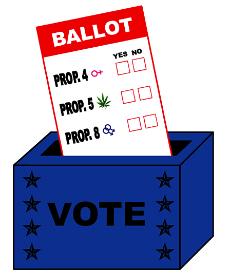Californians will have a chance Nov. 4 to change the state prison system to give non-violent offenders and drug addicts a second chance through a variety of rehabilitation programs, including job training, addiction curing and basic education.
Proposition 5 would also change the penalty for possessing a small amount of marijuana (less than 28.5 grams) from a misdemeanor to an infraction (similar to a traffic ticket). Money generated by the fines would be used to fund rehabilitation programs for incarcerated youth.
And minors would no longer be subject to a fine for a first offense, but would be required to complete a drug education program.
Donna Wapner, a DVC addictions studies instructor, said of Proposition 5, “It provides a variety of effective, science-based substance abuse treatment/education options to youth and adults while reducing the number of non-violent offenders in our prisons, and making rehabilitation a real priority in our state criminal justice system,”
According to the non-partisan Legislative Analysts Office, the total state operating costs for Proposition 5 could potentially exceed $1 billion annually, with that cost offset by savings of $1 billion annually in prison and parole costs.”
But a small, informal sampling of DVC student opinion found little awareness of Proposition 5. Upon learning about reducing marijuana possession from a misdemeanor to an infraction, however, many agreed with that provision.
“I think it’s a good thing that they’re going to do this with marijuana,” said Sarah Cody, 19, a second-semester student. “I think it’s stupid that [users] get a misdemeanor.”
But Nate Cope, 19, a third-semester student, disagreed. “Just allotting more tax dollars and reducing penalties will lead to more drug problems,” he said.
According to the Yes on 5 campaign website, Proposition 5 would create permanent funding from California’s budget worth $460 million per year for rehabilitation programs, including expansion of narcotic replacement therapy, which replace an addict’s illegal drug with regulated addictive drugs, such as methadone.
A major supporter is billionaire George Soros, whose investments include companies who make drugs used in therapy, according to a March 8, 2004 article, “What George Soros Sees in Valentis,” in Business Week magazine.
Opponents of Proposition 5 include former California Governors Gray Davis, Democrat, and Pete Wilson, Republican, as well as groups such as La Raza Roundtable de California and the California State Sheriffs Association.
They say Proposition 5 treats meth dealers and many non-drug related felons the same as the individual drug addict and will set up two new bureaucracies with no accountability and at a cost of hundreds of millions of dollars, according to their website.
Also, they argue costs will be shifted from the state to the counties, which may be forced to raise taxes.
John Sinsel, chair of DVC’s administration of justice department, said reducing the penalties for marijuana possession will increase the attitude that using marijuana is as permissible as drinking alcohol, and he is skeptical that rehabilitation will work for all drug offenders.
“If the rehabilitation programs work, good,” he said. “But what is the evidence that these programs will work?”
The Delancey Street Program in San Francisco does a good job because their rehabilitation program uses a very selective process of identifying potential clients, Sinsel said.
He also expressed concern about counties needing to raise taxes to support the rehabilitation programs.
“I am against raising taxes in general,” Sinsel said. “We are in a financial crisis, and we can’t afford more programs and expensive commissions composed of political appointees to run more failure-prone government experiments.”






































































